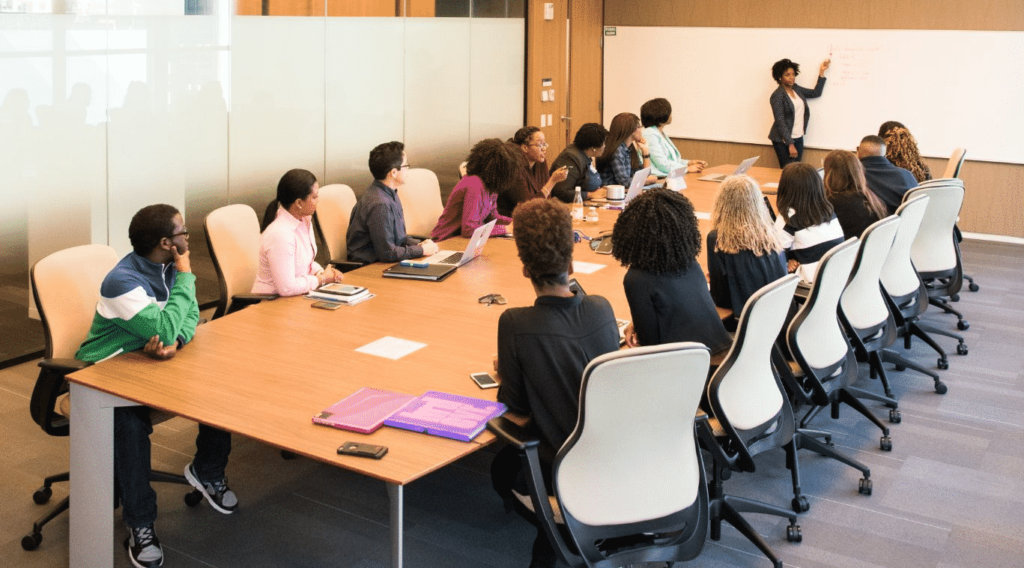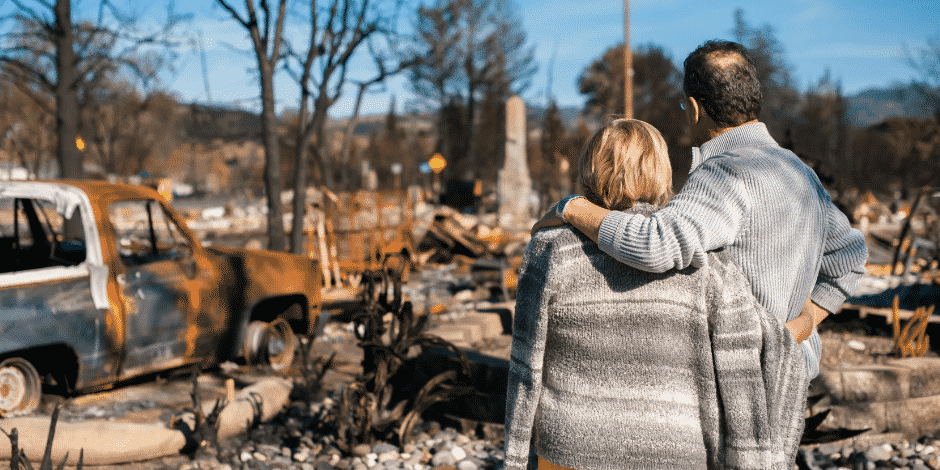Whether we are talking about other agents competing for listings, converting FSBOs, or finding and keeping loyal buyers—your biggest challenge in growing your business is to stand out from all the other agents in your market who are using the same lead generation strategies and tapping the same overburdened sources.
For 26 years, I have been educating and training agents with a focus on safety. I advise you to lead with safety to show clients that you genuinely care about them, their families, and their homes. Let me show you how.
1. Learn About Clients’ Safety & Security Concerns

The key to getting started is to learn about the unique concerns of buyers and sellers in your market. Sellers may be concerned about having tons of strangers walking through their house where their family eats and sleeps.
Buyers may be concerned about buying a home in a dangerous neighborhood with high crime rates. For Sale by Owner (FSBOs) have no idea what they need to be worried about—their chief concerns are likely financial ones, as they try to sell their own homes to save your commission rate. They perhaps don’t recognize that they may be putting their family’s safety at risk.
I typically teach agents how to lead with safety, but the safety-first message applies to the entire industry. With more than 3 million real estate professionals in the country, including mortgage brokers and lenders, insurance agents, title reps, and home inspectors—we can all learn to stay top of mind with our clients by leading with safety education.
2. Get Expert Safety Training

The adage holds that you can’t talk about what you don’t know. Take as many safety and security training classes as you can, but make sure it’s expert-led safety training that teaches you not only to do your job more safely, but also to use that training to grow your business and become an invaluable resource for your clients.
Talk about safety with your clients and explain why you take the steps you do. For example, “I am asking to meet you in advance in line with my safety training. This is important for both of us since we don’t yet know each other.”
Personal safety training is vital because you must practice what you preach and show your clients how important it is. If every step of your business involves safety and protecting your seller, buyer, or FSBO as a regular part of your business, it will become second nature.
3. Protect Your Seller, Their Home & Valuables

While a home is on the market, the seller’s valuables and possessions are vulnerable. Teach your clients what they need to know to protect their property. On my Real Estate Safety Info page on my website, you’ll find a security checklist that you can add to your listing presentation to help guide them.
The fear of living in a pandemic and contracting COVID added a whole new layer of worry and concern. Before, during, and after COVID safety protocols, sellers want to know that the people walking through their homes won’t touch everything in sight and possibly spread germs, or worse.
They also want to be sure the people walking through their house will not steal valuables that are not nailed down. Sellers want to know that burglars aren’t casing their homes at an open house, for example, then coming back through an unlocked door or window to take the valuable stuff later on.
Your first listing appointment needs to start with a security walk-through. You should advise sellers to:
- Put mail and financial documents out of sight (to prevent identity theft).
- Remove medicine from the medicine cabinet.
- Remove valuable from jewelry boxes or put the whole jewelry box in a safe, secure place.
Your advice will show sellers that your number one concern is protecting their best interest.
4. Share Safety Resources With Buyers of Distressed Properties

Viewing distressed properties poses unique safety concerns, especially when compared with viewing regular residential properties. REOs, foreclosures, and investment properties usually aren’t as well-maintained as retail residential properties.
These types of properties pose more risks than the average buyer is accustomed to when touring a home. As a result, they are often dangerous to show. Buyers may not consider the risk of a gutter falling on their head or their foot going through a rotting floorboard. Furthermore, there are typically no disclosure requirements for buyers of condemned properties.
Agents should take the lead and educate buyers about safety concerns before arriving at the property to ensure buyers are safe. Safety-trained agents will make their buyers aware of the safety protocols they may not have heard about before, including the need to meet in advance to ensure the safety of both parties.
It works both ways. News channels report on criminals pretending to be agents and burglarizing the homes of those wishing to sell. You need to educate buyers that this is for their safety, too. That will be news to them.
In this day and age, virtual meetings are the best way to give both parties peace of mind that the person they are meeting is who they say they are. At this point, everyone is accustomed to virtual meetings. Along with other real estate safety protocols, this measure is one we should all keep practicing, long past the end of the pandemic.
Other resources are available to buyers of distressed properties. Point buyers to The National Clandestine Laboratory website to check out houses in advance.
5. Teach Buyers How to Choose a Safe & Secure Neighborhood

The National Association of REALTORS® (NAR) Home Buyers and Sellers Generational Trends Survey showed that 21% of buyers felt that honesty and trustworthiness were important. Buyers will often request that you show them homes only in “good” neighborhoods. Or, they will often ask if a community is safe.
Though you want to be forthcoming, you cannot legally share certain information with consumers. As agents, you may risk violating the Fair Housing Act and being accused of discrimination if you answer specific types of questions or provide crime stats or demographic data regarding any neighborhood.
However, you can still be a valuable resource. Be prepared to advise and protect your buyers. Instead of risking the loss of your client’s trust by not answering questions, offer resources that they use to research and make their own determinations about what is acceptable and safe for them.
“One of the foremost things people want for their home and business is a safe location. By leading with safety and being a safety resource, you will increase trust from your consumers.”
Share online resources like Realtor.com, which allows buyers to input addresses to determine the crime rate for the area they’re shopping in. It also provides information about flood zones, noise levels, property price comparisons, amenities, and schools.
Perhaps the easiest way to help your buyers is to direct them to contact the local police department’s Crime Prevention Unit. They can request crime statistics for their neighborhoods of interest. These will include trends and detailed reports about the types of crimes that have occurred. Direct them to ask the police about ways and resources to stay safe and secure in their neighborhood of choice.
6. Be the Safety Hero to FSBOs

Typically agents approach FSBOs with a sales pitch promising a buyer a house or maximum exposure for the client’s home on the MLS. Unfortunately, the MLS is open these days, and sellers don’t necessarily need an agent get maximize exposure. What they do need is your expertise.
Unfortunately, many sellers choose to go it alone to save money and because they don’t value the agent’s role. They think it’s as easy as putting a sign in the yard and accepting a contract for sale.
FSBOs don’t know what they don’t know. According to the National Association of REALTORS®, properties sold by their owner typically sell for a lower selling price than other homes. Apart from losing money, FSBOs likely haven’t considered or planned for other potential risks, either.
Lucky for them, the NAR has a vital community service component, helping to educate sellers about protecting themselves and their families while their homes are on the market. Using my decades of industry safety expertise, I’ve created a handout that you can use to educates home sellers. Use it as a marketing tool by stapling your business card to printed copies. Request it here.
Instead of focusing your preliminary FSBO conversation on listing their home, selling it, or potential buyers, your sole focus will be to give them safety and security information. With all things being equal, when they cannot sell their home on their own, your card will rise to the top of the pile.
7. Educate Consumers & Your Community About Safety & Security

Statistics show that most of your clients will not use you on their next real estate transaction—no matter how much they tell you they love you after the sale.
“It used to be that 89% of buyers said they’d use their agent again,” says Matthew Hansen. “But in reality, only 18% of clients actually follow through on this promise.”
Hansen is the Northwest Area Director at Cutco Closing Gifts, and he focuses on teaching agents about client retention. “That still means that 82% of the time, buyers are using another agent on their next transaction,” he continued. Not exactly terrific odds.
It isn’t because you are not great at your job, but simply because your clients aren’t thinking about you once their transaction closes. However, it’s a two-sided coin. According to NAR, 91% of all realtors never contact the buyer or seller of a home after closing. It’s a huge missed opportunity, assuming they’ve been happy with your service.
“Keeping ‘top of mind’ is key for agents staying connected to consumers. This involves lots of marketing touches throughout the year—33 per year to be precise!”
Positioning yourself as a safety expert is one strategy to keep you top of mind with your buyers, sellers, FSBOs, and community. Hansen and his counterparts sponsor real estate safety education across the U.S., both virtually and onsite, as a way to stay in front of agents and to facilitate the sharing of safety education.
Coni Meyers, CEO of CKM Solutions Group, created a disaster preparedness training program for the real estate community. Her goal is to get 30 million people trained and ready to face any disaster. According to Meyers, the real estate community is the perfect vehicle to get the word out about safety.
Her firm offers new mini-training sessions each month that agents can deliver to their community. She recommends that agents use her disaster preparedness tips and plans in their meetings with clients.
“[Safety training] is good for the brokerage, good for the agents, good for their potential clients and existing clients, and great for the community. They can be a part of saving lives, reducing property damage, and saving lots of money.”
Bottom Line
Serving your community is simply the right thing to do. Marketing experts advise us to post regularly to social media, send email and direct mail marketing, and share thoughtful gifts with our clients to stay top of mind. Why not be your clients’ hero by regularly sharing relevant safety and security content written by experts in the field.






Add comment